LABORgLAskAtALOg LABORATORY GLASSWARE CATALOGUE
LABORgLAskAtALOg LABORATORY GLASSWARE CATALOGUE
LABORgLAskAtALOg LABORATORY GLASSWARE CATALOGUE
Sie wollen auch ein ePaper? Erhöhen Sie die Reichweite Ihrer Titel.
YUMPU macht aus Druck-PDFs automatisch weboptimierte ePaper, die Google liebt.
technIcal InformatIon | product sectIon<br />
technIcal InformatIon | product sectIon<br />
safety InstrUctIons<br />
fUrther ProcessIng<br />
when used according to our specifications, dUran ® glassware is very safe to use. the appropriate<br />
guidelines applicable for the use of special glass in laboratories in the country in question should<br />
always be complied with.<br />
the following points should, however, be observed in every case:<br />
• For safety reasons, before DURAN ® laboratory glassware is used it should be checked to ensure<br />
that it is suitable for the intended purpose and that it can be used without problem.<br />
• Defective laboratory glassware represents a risk (e. g. risk of cuts, burns, infection) that should not<br />
be underestimated. If appropriate repairs to any item cannot be carried out or cannot be justified<br />
for economic reasons, it must be disposed of in the proper manner.<br />
• Repairs must only be carried out by competent, specialist, glassworkers. Poorly, repaired<br />
glassware can fail without warning and represents a significant hazard.<br />
• Only subject DURAN ® glassware to sudden temperature changes within the recommended limit for<br />
thermal shock resistance (Δt = 100k). this means that hot laboratory glassware should not be<br />
taken out of a drying cabinet and placed on a cold or even wet laboratory bench. this applies in<br />
particular to thick-walled glassware such as filtration flasks and desiccators.<br />
• When assembling apparatus make sure that it stands firmly and is not subjected to stress by<br />
using appropriate stands.<br />
dUran ® items made of borosilicate glass 3.3 are suitable for further processing such as the addition<br />
of screw thread tubes, olives, tubulatures, necks and ground glass joints. Preferred for further processing<br />
are round, flat bottom and erlenmeyer flasks. certain sections of the temperature / viscosity range<br />
are of particular importance for glassworking. In the transformation range the elastic-brittle behaviour<br />
of the glass changes with increasing temperature into a markedly viscous one, so that consequently<br />
all its physical and chemical properties change significantly with temperature. the transformation<br />
temperature range thus plays an important part in stress relief during heating up and the introduction<br />
of stress when the glass is cooled. the position of the transformation range is identified by the<br />
transformation temperature “tg” dIn 52 324.<br />
note:<br />
dUran groUP cannot accept any product liability where items are subjected to further processing.<br />
In this case the entire responsibility for quality lies with the glassworker. the latter is therefore<br />
responsible for ensuring that the further processed item conforms to current directives and safety<br />
requirements.<br />
dIsPosal<br />
dUran ® laboratory glass should under no circumstances be disposed of in the domestic glass<br />
recycling stream (e. g bottle banks), since its high melting point and different chemistry make it<br />
incompatible with other glass cullet (soda-lime glass) for recycling. the correct way to dispose of it is,<br />
in principle, to include it with general household waste (residual waste) in accordance with the<br />
relevant guidelines, provided that the glass is quite free of any harmful contamination (waste code<br />
no: 17 02 99 d1).<br />
dUran ® laboratory glass Is eco-frIendly<br />
dUran ® laboratory glass is made from natural, mineral raw materials. Unlike other materials,<br />
laboratory glass, when used properly, will give years of service and this means that it is vastly superior<br />
to other materials from an ecological viewpoint too. depending on its use, dUran ® can be disposed<br />
of as household waste and does not need to be dealt with as special waste which may be environmentally<br />
harmful. toxic substances cannot leach out because of the raw materials used.<br />
normal temperature<br />
dependence/viscosity curve<br />
of, for example, dUran ® ;<br />
viscosity ranges of important<br />
processing techniques,<br />
position of fixed points of<br />
viscosity and various limiting<br />
temperatures.<br />
Production processes in our factories have been consistently optimized over recent years to ensure<br />
that they are environmentally friendly during the actual manufacturing stage through the minimum<br />
usage of valuable resources. electrical heating and advanced technology in our melting units ensure<br />
that no pollutants are released during manufacture in our ultramodern factories which could harm<br />
our workers or people living nearby. In addition energy demand is kept as low as possible. the latest<br />
waste gas purification equipment is used to avoid emissions which could pollute the environment. a<br />
significant investment has been made in an enclosed cooling water recirculation system to cut the<br />
amount of fresh water required to a minimum thus helping to conserve vital water resources. we<br />
use packaging made from environmentally harmless, recycled paper which can be returned after use<br />
to the resource cycle.<br />
214<br />
215



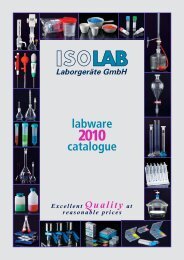
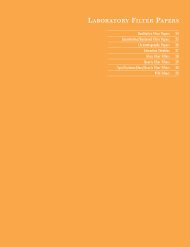
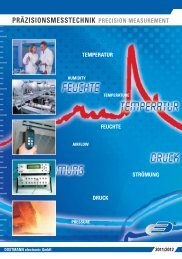
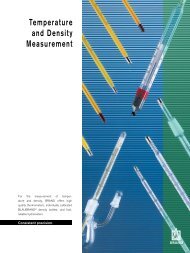
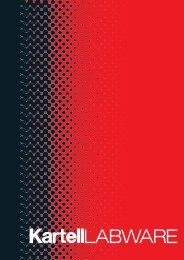

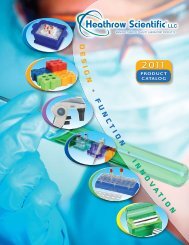


![Download [12.5MB] - Labtek](https://img.yumpu.com/24756492/1/184x260/download-125mb-labtek.jpg?quality=85)
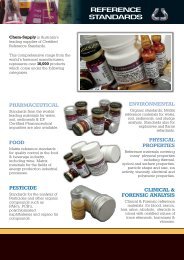
![DYMO Healthcare Brochure [2MB] - Labtek](https://img.yumpu.com/24756484/1/190x240/dymo-healthcare-brochure-2mb-labtek.jpg?quality=85)
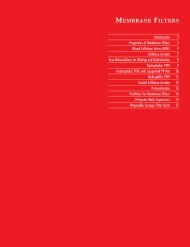
![Download [12.5MB] - Labtek](https://img.yumpu.com/24756470/1/184x260/download-125mb-labtek.jpg?quality=85)